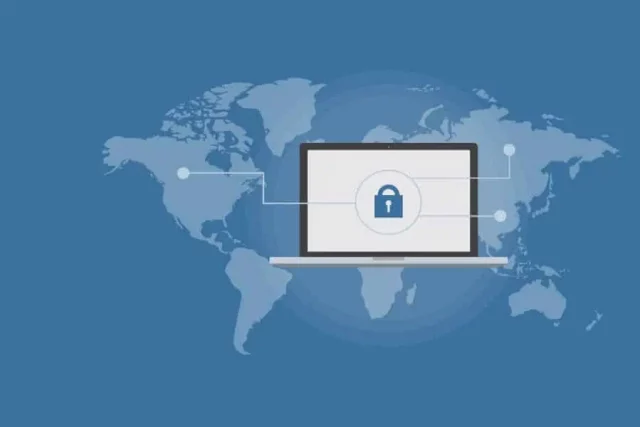In today’s world, no area of business is more important than data security. With the exponentially increasing availability and complexity of cloud-based services, this challenge can be daunting for many businesses. Multi-cloud architectures are rapidly becoming a key enterprise technology choice as they offer increased agility and scalability – but with increased power comes greater risk. In this blog post, we’ll explore why multi-cloud data security matters, what risks effective cloud data solutions protect against, how to implement these security strategies, and how to ensure compliance most effectively. By considering both technical measures such as encryption protocols and privilege management models alongside legal concerns like jurisdiction requirements you can comprehensively safeguard your organization’s data – whatever its location or purpose within your operations model may be!
The Concept Of Multi-Cloud Data Securit And Its Importance
As more companies adopt cloud computing, the need for effective data security is becoming increasingly important. Multi-cloud data security is a concept that addresses these concerns by allowing businesses to spread their data and applications across several cloud platforms. This approach not only reduces the risk of data loss or theft but also helps to ensure business continuity in the event of a security breach or outage. With multi-cloud data security, businesses can enjoy the benefits of cloud computing without sacrificing the security and privacy of their sensitive information. Also, multi cloud data security allows for greater flexibility and scalability in an ever-changing and unpredictable business environment. For instance, if a particular cloud platform experiences an outage due to technical or security issues, businesses can quickly switch to another cloud platform without disrupting their operations. Additionally, multi-cloud data security solutions provide a wide range of features, such as centralized monitoring and compliance management, that help organizations secure their data across multiple cloud platforms. Whether you are an enterprise or a small business, implementing multi-cloud security measures can provide peace of mind and protect your most valuable assets.
The Potential Risks Of Using A Multi-Cloud Solution
As businesses are increasingly relying on cloud computing for various operations, the trend of adopting multi-cloud solutions has become more common. However, even though multi-cloud solutions can bring numerous benefits, such as flexibility and cost efficiency, several potential risks need to be considered. One major concern is security breaches. As data is spread across multiple cloud providers, it is harder to control who has access to it and how it is stored. This places organizations at a higher risk of cyber threats such as hacking and data breaches. Additionally, the use of multiple cloud platforms could also result in data leakage, which can have significant consequences such as legal penalties, loss of trust from customers, and a damaged reputation. Therefore, businesses need to implement robust security measures and thoroughly assess the risks involved before opting for a multi-cloud solution.
Ways To Limit Security Risks When Using A Multi-Cloud Solution
The rise of multi-cloud solutions has certainly been a welcome development for businesses seeking flexibility and efficiency. However, with the convenience of multi-cloud comes the need for heightened security measures. One key way to ensure security in a multi-cloud environment is to encrypt sensitive data to prevent unauthorized access. Encryption is a process that scrambles data in such a way that only authorized users can decode it. This makes it difficult for hackers to steal or misuse information and can help to prevent data leakage. In addition to encryption, implementing a strong privilege management system is also essential. This should include restricted access to privileged accounts, and the use of unique passwords for each user. Finally, it is important to regularly audit cloud systems to detect any potential vulnerabilities or suspicious activity. For example, monitoring for any unusual data access patterns or changes in user privileges can help to quickly identify threats. Or, using a multi-cloud security provider can help ensure compliance with applicable regulations. By implementing these measures, a company can greatly reduce the risks of potential security breaches across its multi-cloud platforms. Though it may require some extra effort, taking the necessary precautions to protect sensitive data is always worth it in the end.
Strategies For Effective Multi-Cloud Data Security Management
In today’s digital age, multi-cloud data security management is becoming increasingly important for any organization. Utilizing multiple cloud providers not only increases flexibility but also diversifies security risks, making it crucial to have a comprehensive strategy in place. In order to effectively manage data security, monitoring user activities is essential. This includes keeping an eye on potential breaches, verifying user credentials, and auditing system access logs. Furthermore, setting up incident response plans can help mitigate any security threats and provide a clear course of action in case of a breach. Moreover, organizations should keep up to date with the latest security protocols and regulatory requirements to remain compliant. It is also important to develop a firm backup and disaster recovery strategy. This should include regular backups of data and applications, as well as a detailed plan on what to do in case of an emergency. By implementing the right security measures, an organization can ensure that its data remains secure and protected across multiple cloud platforms.
The Benefits Of Having A Comprehensive Multi-Cloud Data Security Plan In Place
Sensitive data protection has never been more crucial than it is in today’s fast-paced digital environment. With a comprehensive multi-cloud data security plan in place, businesses can not only safeguard their information but also reap numerous benefits. For starters, such a plan can lead to reduced costs in terms of potential data breaches and customers’ trust loss. In turn, this helps foster an environment of greater customer satisfaction and loyalty. Additionally, a multi-cloud data security plan can help companies comply with various regulations and industry standards, such as PCI DSS, GDPR, ISO 27001, and HIPAA, which are put in place to protect consumer data. Furthermore, it can also help organizations detect security threats before they become serious issues, as well as quickly respond to any incidents. Ultimately, having a comprehensive multi-cloud data security plan in place can help businesses protect their most valuable assets while ensuring that their operations remain smooth and secure. By enabling quick detection and response to any security threats and implementing measures to prevent them in the first place, a business can stay one step ahead and enhance its reputation as a responsible and trustworthy entity.
The Importance Of Following Legal Regulations And Compliance Standards When Implementing A Multi-Cloud Security Plan
While having a comprehensive data security plan is essential for businesses that use multiple cloud platforms, it is also important to remain compliant with local laws and industry regulations. As such, any organization should be aware of relevant legislation regarding their data protection practices and adhere to them. As previously mentioned, they should also be aware of industry-specific compliance standards such as HIPAA, GDPR, or SOX. HIPAA, for example, sets out rules to protect the privacy and security of individuals’ medical information, while GDPR is a set of regulations designed to protect EU citizens’ data. Moreover, organizations should also consider the different requirements of cloud providers when it comes to security and compliance. Each provider may have different standards, so it is important to understand and adhere to these in order to ensure compliance. This is important to ensure that data remains secure and private at all times and does not fall into the wrong hands. Following legal regulations and compliance standards helps businesses gain customer trust, avoid costly fines, and remain compliant with applicable laws. Therefore, it is essential for any organization that uses multi-cloud solutions to understand the importance of following these regulations.
Tips And Tricks For Multi-Cloud Data Security
Multi-cloud data security is a crucial component of every organization’s IT architecture in the current digital era. It is crucial to have the proper safeguards in place to guarantee that data is safe and secure. To ensure multi-cloud data security, consider the following advice and techniques:
1. Monitor user activities regularly to detect any suspicious activity.
2. Utilize multi-factor authentication to verify user credentials.
3. Set up policies and procedures for handling security incidents quickly and effectively.
4. Implement the latest security protocols and standards, such as PCI DSS, GDPR, ISO 27001, etc., in order to remain compliant with regulations.
5. Regularly backup data and applications in order to prepare for potential disasters.
6. Invest in high-quality encryption technologies to guarantee the security of data at rest and in transit.
7. Educate employees on best practices for protecting sensitive information.
In conclusion, multi-cloud data security is a critical part of any organization’s cloud operations. Data security threats pose serious risks; however, there are a variety of measures that organizations can take to reduce those risks. Organizations must recognize the importance of strong data encryption practices, access control systems, monitoring user activities, and setting up incident response plans. By having a comprehensive multi-cloud data security plan in place, an organization can ensure its data is secure and mitigate potential risks associated with multi-cloud deployments. Moreover, such strategies will enable organizations to save on costs while also improving customer satisfaction and trust. Ultimately, companies must invest in strong data security processes as they move to the cloud in order to protect their valuable assets and remain competitive.














